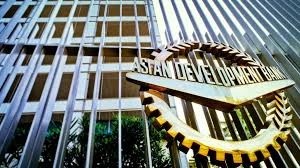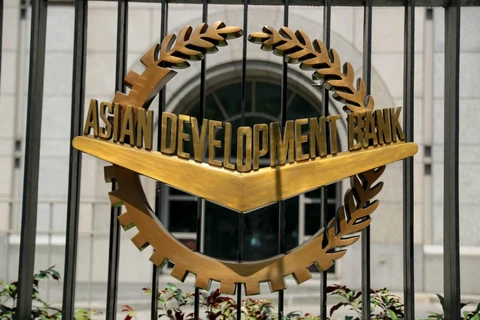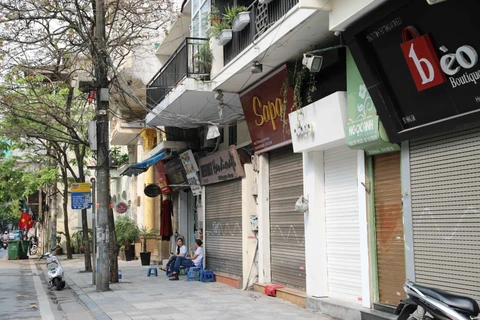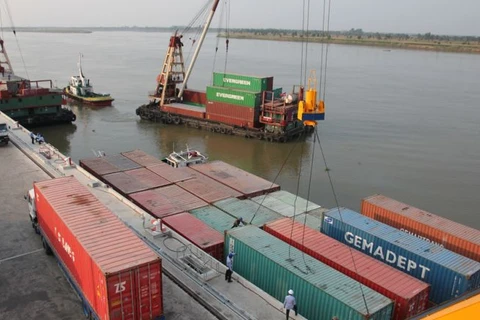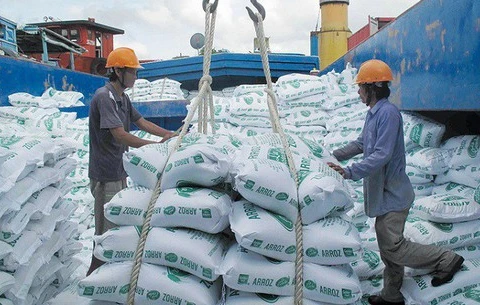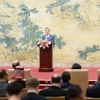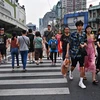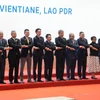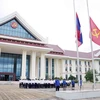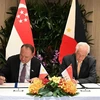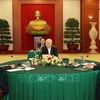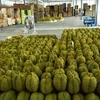Hanoi (VNA) – The Asian Development Bank (ADB) on April 13 tripled the size of its response to the COVID-19 pandemic to 20 billion USD and approved measures to streamline its operations for quicker and more flexible delivery of assistance.
The package expands the bank’s 6.5 billion USD initial response announced on March 18, adding 13.5 billion USD in resources to help its developing member countries counter the severe macroeconomic and health impacts caused by COVID-19.
The 20 billion USD package includes about 2.5 billion USD in concessional and grant resources.
[ADB helps regional countries combat nCoV]
“This pandemic threatens to severely set back economic, social, and development gains in Asia and the Pacific, reverse progress on poverty reduction, and throw economies into recession,” said ADB President Masatsugu Asakawa.
“Our expanded and comprehensive package of assistance, made possible with the strong support of our Board, will be delivered more quickly, flexibly, and forcefully to the governments and the private sector in our developing member countries to help them address the urgent challenges in tackling the pandemic and economic downturn,” he added.
ADB’s most recent assessment, released on April 3, estimates the global impact of the pandemic at between 2.3 percent and 4.8 percent of gross domestic product. Regional growth is forecast to decline from 5.2 percent last year to 2.2 percent in 2020.
The new package includes the establishment of a COVID-19 Pandemic Response Option under ADB’s Countercyclical Support Facility. Up to 13 billion USD will be provided through this new option to help governments of developing member countries implement effective countercyclical expenditure programmes to mitigate impacts of the COVID-19 pandemic, with a particular focus on the poor and the vulnerable.
Grant resources will continue to be deployed quickly for providing medical and personal protective equipment and supplies from expanded procurement sources.
Some 2 billion USD from the 20 billion USD package will be made available for the private sector. Loans and guarantees will be provided to financial institutions to rejuvenate trade and supply chains. Enhanced microfinance loan and guarantee support, along with a facility to help liquidity-starved small and medium-sized enterprises, including those run by female entrepreneurs, will be implemented alongside direct financing of companies responding to or impacted by COVID-19.
The response package includes a number of adjustments to policies and business processes that will allow ADB to respond more rapidly and flexibly to the crisis. These include measures to streamline internal business processes, widen the eligibility and scope of various support facilities, and make the terms and conditions of lending more tailored.
All support under the expanded package will be provided in close collaboration with international organisations, including the International Monetary Fund, World Bank Group, World Health Organisation, United Nations Children’s Fund (UNICEF), and other United Nations agencies, and the broader global community, according to ADB.
In its Asian Development Outlook 2020 released in April, ADB predicts growth in the region will slow sharply to 2.2 percent in 2020 under the effects of the current health emergency and then rebound to 6.2 percent in 2021.
Excluding Asia’s high-income newly industrialised economies, growth will drop from 5.7 percent to 2.4 percent this year before recovering to 6.7 percent next year.
Headline inflation accelerated in 2019 as food prices edged up but remained low by historical standards. Inflation will climb further to 3.2 percent in 2020, but declining food prices in the latter half of the year will set the stage for easing inflation in 2021. Downside risks to the outlook are severe, most notably from COVID-19. In these difficult times, when challenges to growth abound, innovation is critical to inclusive and environmentally sustainable growth. While some economies in developing Asia are near or at the global innovation frontier, many others lag behind, ADB noted in the report.
Established in 1966, the bank is owned by 68 members, with 49 from the Asian and Pacific region./.

